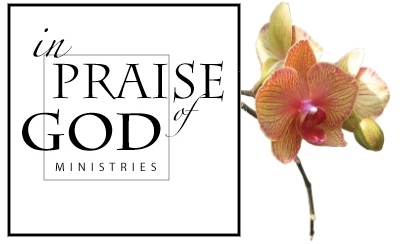For quite some time I’ve really appreciated the idea of creatureliness. I’m not sure where I first heard the term; I don’t recall ever seeing the idea discussed in print, though I suppose I may have–my memory is not the best. However, I DID see the word this morning as I was reading The Holiness of God by R. C. Sproul (a good book–I recommend it). He has some good thoughts about the idea of creatureliness…some of which I had not previously considered in the way he does. In fact, I would sort of say that, while I had previously understood one aspect of creatureliness, he presents a different but very important way of thinking about this concept. Here, then, is a brief discussion of creatureliness, in two parts.
Part 1 (the part of creatureliness I previously understood):
God created all things in the way that He chose. When created things (i.e. creatures) live according to the way He designed, we not only bring glory to Him but also find blessedness, peace, and fulfillment. One way we live according to God’s design is by flourishing and growing in the places He puts us and the ways He tells us we should. For instance, we can:
pursue wisdom
pursue the knowledge of Him
pursue spiritual growth
be fruitful and multiply
love and serve others
be creative
MANY more!
Another way we live according to God’s design is by accepting–even embracing–our limitations. This means that we can bring glory to God and rejoice in doing things that we might not otherwise think about in that way:
going to sleep on time and resting our bodies properly (side note: C. J. Mahaney’s book Humility: True Greatness has a brief but very good discussion of this.)
stopping work for rest, food, and of course worship
taking care when we are sick
not trying to take on more work than we can handle, and not thinking of our work as over-important (i.e. limiting self-imposed stress)
In these ways, recognizing and embracing our creaturely status can help us to live well in the ways that God intended for us. It brings Him glory because by doing these things, we demonstrate that we recognize His wisdom in giving us all that we need for life and godliness. It brings us peace because we are rejoicing in what God has given us to do, and not attempting to reach beyond our limits. (Of course, I do not mean we must settle for complacency and mediocrity! We can reach far, and pursue true human greatness while still recognizing the bounds of our humanity!) There are a variety of exciting implications for recognizing and living according to our creaturely status.
Part II (another side of creatureliness):
After reading Sproul, I think the above understanding of creatureliness, while important and correct, is just a little bit too one-sided. Even though it acknowledges God as creator, it focuses on us: what we do (or should do), and why we can rejoice in our limitations. Yet our understanding of creatureliness should begin not with the creature, but with the Creator. Sproul writes:
…the clearest sensation that human beings have when they experience the holy is an overpowering and overwhelming sense of creatureliness. That is, when we are aware of the presence of God, we become most aware of ourselves as creatures. When we meet the Absolute, we know immediately that we are not absolute. When we meet the Infinite, we become acutely conscious that we are finite. When we meet the Eternal, we know we are temporal. To meet God is a powerful study in contrasts
Being reminded that we are creatures is not always a pleasant thing. The words of Satan’s original temptation are hard to erase from our minds. “Ye shall be as gods” (Gen. 3:5, KJV). This ghastly lie of Satan’s is one lie we would dearly love to be able to believe…
Death reminds us that we are creatures. Yet as fearsome as death is, it is nothing compared with meeting a holy God. When we encounter him, the totality of our creatureliness breaks upon us and shatters the myth that we have believed about ourselves, the myth that we are demigods, junior-grade deities who will try to live forever. (R. C. Sproul, The Holiness of God, 2nd edn. Tyndale, 1998, 54-55)
Thus, understanding God and His holiness implicitly makes us understand our creatureliness. This is good and right–but not easy! It is easier, I think, to start with our lack and then think about ways we can excel. Yet when our focus is on God, it still brings the peace and joy of creaturely living that I described above in Part I–but, I would say, it brings that peace and joy more fully because the joy is not in our life, but in God’s power and our participation in His plan for all things.I am sure there is more to be said about creatureliness. But perhaps this is a good start. May God grant that we see His holy transcendence and have a correct estimate of ourselves in comparison–nevertheless rejoicing because He has bountifully given us His favor and an inheritance forever with Him through His Son.
